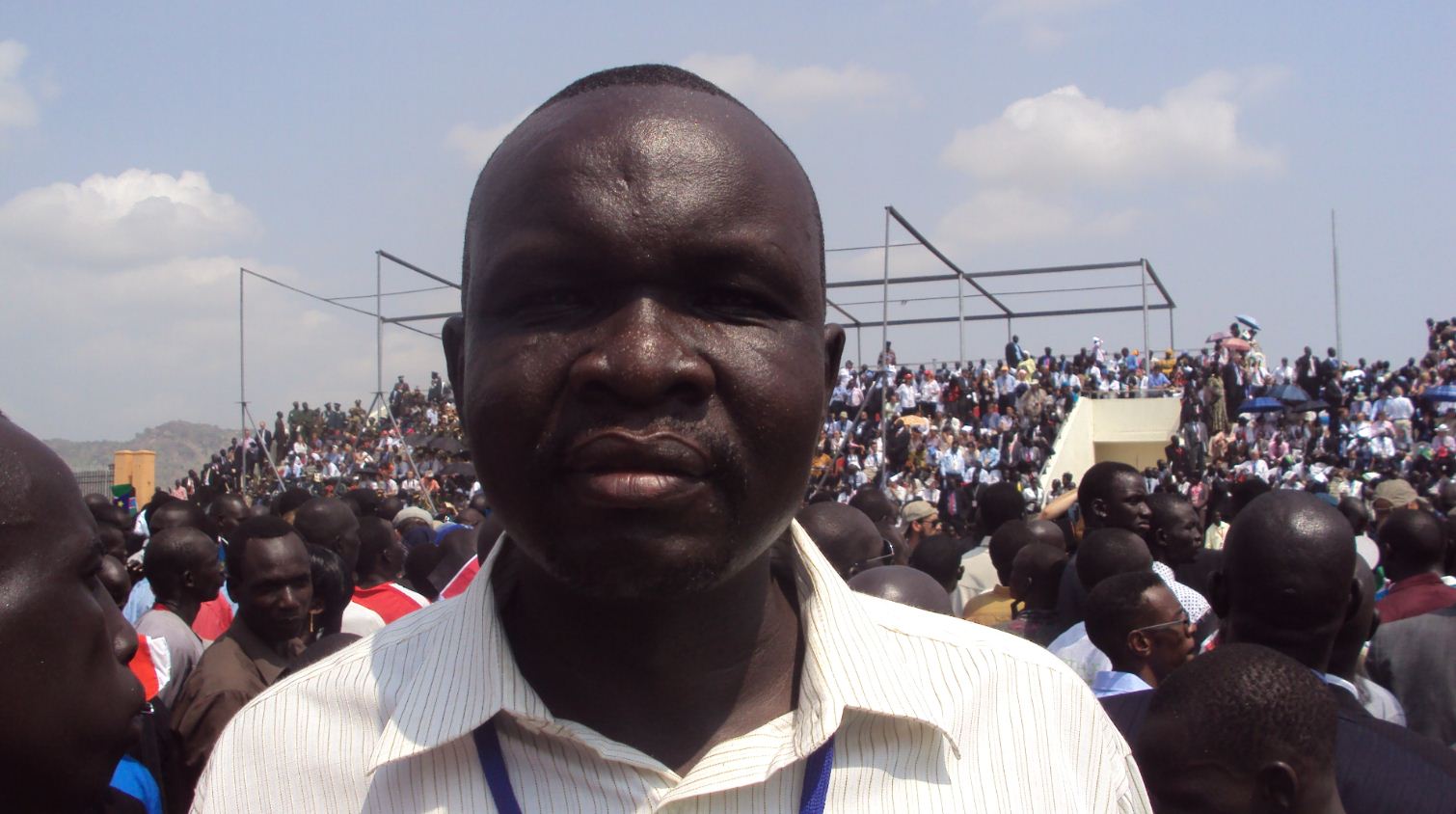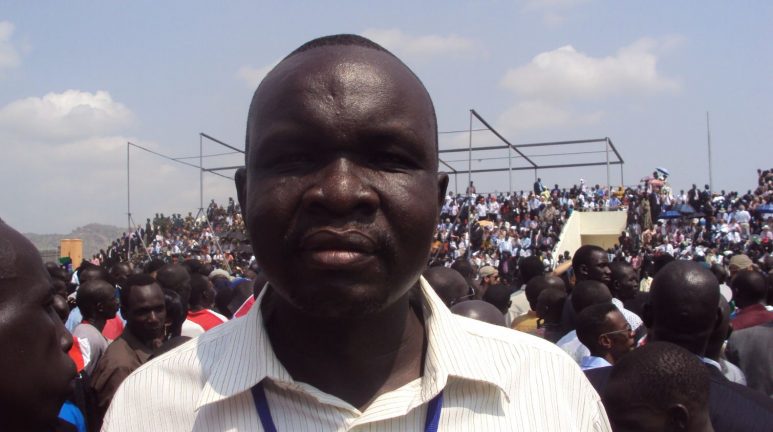
Amongst the challenges facing the fledgling state of South Sudan is the dire need to promote and establish the fundamental democratic principle of press freedom. In order to assist in this process, the Union of Journalists of South Sudan (UJOSS) has set up a Press Freedom Observatory (PFO) to regularly monitor the situation regarding press freedom in all ten states of South Sudan. What follows is the first report from the PFO.
Santino Manut, head of government owned Warrap FM radio, says that journalists in Warrap state continue to face harassment from security forces and politicians. Because of the state’s proximity to the North, security agents are overly sensitive in their monitoring of the media, meaning that journalists are forced to operate in an atmosphere of fear. Additional problems faced by reporters in Warrap are the lack of understanding of the role of the media, poor internet access and mobile phone reception, lack of training and low pay, Manut states.

Hussein Makheit, a seasoned journalist based in Northern Bhar El Ghazal state capital Wau, who works as an information officer at the state Ministry of Information, asserts that even after independence, journalists continue to be viewed with a lot of suspicion by local authorities, especially security personnel, in the state.
In Central Equatoria state, Charles Yuggu, a freelance journalist, reports that the media are given a very rough time by security officials and especially those in powerful positions in the government. “In some cases, media houses have been threatened with closure while individual journalists have been arrested and locked up,” Yuggu states. He also notes that the problem of poor remuneration has forced many journalists out of the profession, with some securing employment as drivers with the United Nations or international or local NGOs.
In Western Equatoria State, Gift Friday, a freelance journalist, says that although the state Ministry of Information has asked security personnel to stop harassing journalists, cases of harassment remain on an upward trend. He states that, “there are situations where journalists have been barred from covering some functions which state authorities consider as private while in some instances journalists have been threatened by certain politicians over material that has been broadcast.
Ijjo Bosco, a UJOSS member based in Eastern Equatoria state, says that, “there is nothing enjoyable here about the profession of journalism because we have to really strive hard to get news, package it and even send it. Insecurity here has also seen journalists go into hiding because some individuals feel threatened by their reports.” Bosco maintains that press freedom remains a pipe dream, as the majority of local people still do not appreciate the role of the media. “We face a lot of threats because most people including those who should promote press freedom, do not really understand what we do and we are still viewed with a lot of suspicion, which makes it very difficult for us to gather news,” states Bosco.
In Lakes state, Abraham Machuor says that press freedom has suffered major setbacks since 2009, with journalists facing frequent arrests and sackings, especially when material broadcast on local Rumbek FM radio is perceived as unfavorable to the state authorities. He also asserts that in some cases, government officials insist on approving stories before they are released. “Some journalists, such as Peter Maliap, lost their jobs after it was alleged that they were working in the interests of the Khartoum government. This has left many of us wondering how we can survive here as journalists when any information that touches on the government is considered sensitive and classified,” Machuor says.
In Upper Nile’s Malakal town, there aren’t many trained journalists save for a few who learnt some skills through training workshops. Julius Umma, a reporter who often travels to this remote part of South Sudan, notes: “Here journalists have to seek permission from local authorities including the police before doing anything, including taking photos. Journalists find it very difficult to access information, as security personnel keep on insisting that the media could be a threat to national security.”
In South Kordofan’s Kaduguli town, there are few journalists, states Charles Mathiang,
John Actually, a reporter based in Bor town in Jonglei state, says that access to information and freedom of expression is very limited there, largely due to the high level of insecurity, as the state most affected by tribal clashes. The seriously compromised security situation within the state means that journalists find it very difficult to access many places. “Journalists have to wait for invitations to cover government functions. We even have to seek permission to go out and interview ordinary people on the streets, otherwise we risk arrest and detention without any precise charges. Even traveling to the remote places affected by the clashes remains difficult and so a lot of incidents go unreported because journalists operate under constant fear of fighting or arrest,” says John.
In Unity state, journalist Joseph Dodo reports that there are only three journalists operating because of the constant tensions between the northern and southern armies at the border town of Bentiu. “We cannot even talk of press freedom here because it is a dangerous area to operate in. Again we are only expected to report positively when it comes to issues touching on the government and the Sudanese People’s Liberation Army. At times we are instructed on what to cover and what to leave out,” asserts Dodo.
In general the picture of press freedom in South Sudan, painted by these reports, remains gloomy due to many factors such as lack of understanding of the role of the media, an absence of media laws to regulate the sector and protect journalists, insecurity in some states, constant threats from security personnel and powerful individuals, and poor training and pay for journalists, as well as poor communications.
